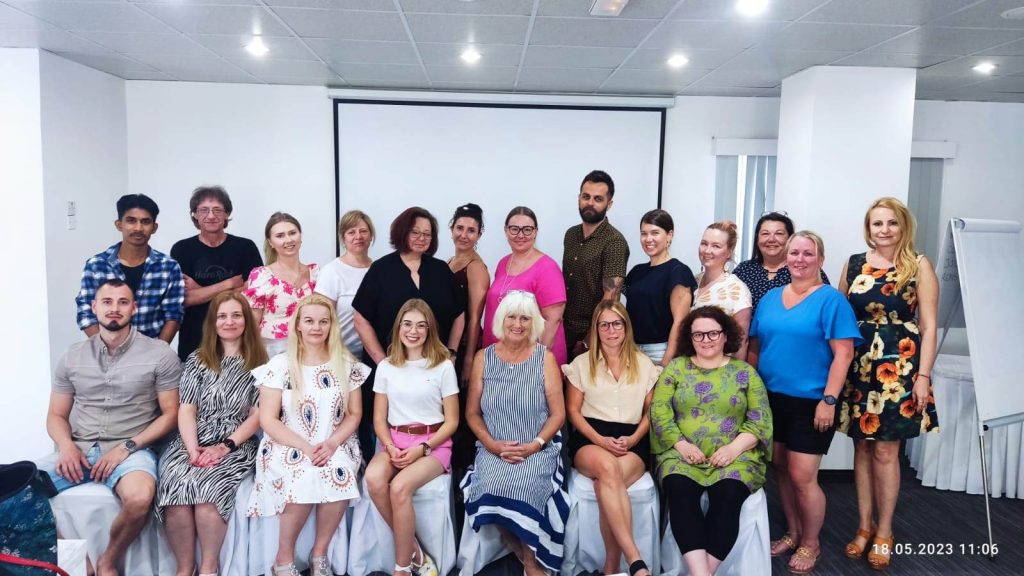The introduction to the course topic primarily aimed to explain the fundamental differences, including those of a legal nature, between the concepts of migrant and refugee, as well as how these concepts intertwine. Next, we focused on learning about the kinds of hardships faced by minority migrants and refugees in the areas of culture, language, and nonverbal communication. We discussed the importance of understanding and respecting cultural differences and the associated behaviors, emphasizing the importance of accepting them without subjective judgment.
During the following days of the training, participants were tasked with identifying the most challenging issues and possible solutions in case studies directly related to selected minority groups. The topic of communication, as a tool for understanding, was extensively discussed. Various forms of communication were presented, and attention was drawn to the differences that exist across different cultures. Attendees learned effective ways to deal with cultural differences and the benefits of achieving cultural sensitivity.
Considerable emphasis was placed on the importance of education as both a duty and a right for every individual, particularly highlighting its crucial role in fostering the integration of children. The discussion further delved into early childhood programs that promote holistic development, such as Early Education Programs, which serve as vital educational tools for migrant children in need of support. The impact of factors like age and the duration of compulsory schooling on migrant children, as well as their assimilation and integration, was underscored. Moreover, the training provided insights into how the welfare system influences relationships with migrant and refugee communities, shedding light on its profound effect on how parents and children navigate their adaptation to a foreign society.
Another significant topic addressed was the prevalence of racism, discrimination, bullying, and exclusion experienced by migrant communities in various aspects of their lives, including schools, daily interactions, the job market, and social media. The training highlighted how societal pressures associated with belonging to a specific social group contribute to racist and discriminatory behaviors towards migrants. The training also shed light on the disparities in access to basic needs, such as the right to work, which is one of the most important fundamental human right, emphasizing their profound impact on the lives of refugees. The phrase “having a job means having a life” encapsulated the central theme of the discussions. Additionally, the training explored the challenges that refugees face in accessing the job market and the resistance encountered from local communities. This served as a segue into a discussion on legislative regulations aimed at facilitating the employment process for refugees.
On the final day, the topic of post-traumatic stress disorder (PTSD) was addressed, outlining statistics that demonstrate the significant portion of the refugee community affected by this issue. The training highlighted how events and experiences endured by victims in their home countries, during migration, in refugee camps, and in the host country can increase the risk of developing PTSD. Participants had the opportunity to familiarize themselves with the best practices and appropriate behavioral approaches.
One of the final topics covered was anti-discrimination policy and its role in supporting migrant and refugee communities. The analysis focused on how the state, its policies, and laws should respect international directives, including the Equality Directive, which serves as a mechanism to enhance the level of protection.
Migration has a huge impact on the society and requires an approach characterised by empathy and understanding for those coming from different cultures and backgrounds. Thanks to this training we gained the knowledge which promotes tolerance and acceptance, as well as creation of open and supportive communities. Through education and understanding of various aspects related to this issue, the training contributes to building a society that actively supports the process of migrant integration.

